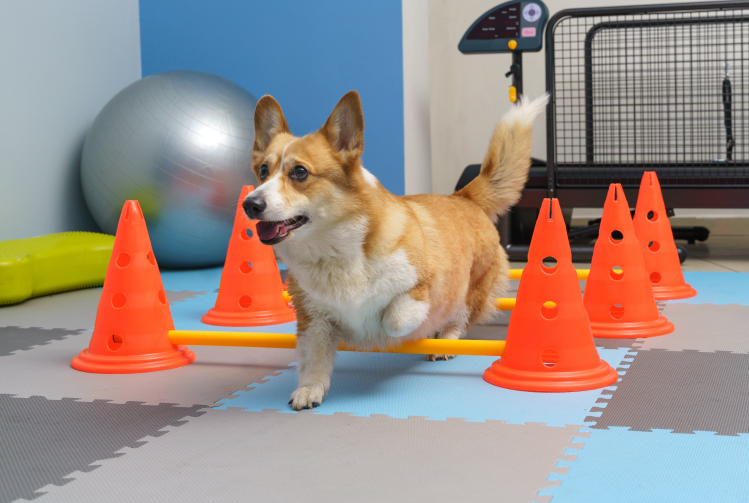Animal physiotherapy is a holistic approach to recovery that supports pets' healing from surgery, injury, or managing chronic conditions. By improving mobility, reducing pain, and promoting healing through targeted techniques such as manual therapy, therapeutic exercises, hydrotherapy and electrotherapy, it plays a vital role in restoring function and comfort.
Physiotherapy not only helps speed up recovery but also reduces the risk of future injury, enhances independence and improves overall quality of life. With expert guidance, pets can regain strength, stay active and enjoy healthier, happier lives.
Common Conditions Managed Through Animal Physiotherapy
Animal physiotherapy can support a wide range of conditions and is often divided into specific areas of focus:
Orthopaedics
Animal physiotherapy helps treat conditions affecting bones, joints, ligaments, tendons and muscles. These include arthritis, hip and elbow dysplasia, cruciate ligament injuries, fractures and joint dislocations. With the right techniques, physiotherapists work to alleviate pain, restore joint function and strengthen the muscles supporting the affected area.
Respiratory
Respiratory physiotherapy for animals addresses conditions that impair breathing and lung function. Physiotherapy can help manage pneumonia, chronic bronchitis or asthma, and a collapsing trachea. It aims to improve lung volume, manage secretions and enhance the animal's ability to breathe.
Neurological
For pets with spinal cord or nervous system disorders, physiotherapy can aid recovery. Conditions like intervertebral disc disease (IVDD), stroke, degenerative myelopathy and nerve injuries can benefit from targeted exercises that enhance balance, coordination and nerve function.
Sports Medicine
Just like human athletes, working animals and sporting dogs are prone to injuries such as sprains, strains and tendonitis. Physiotherapy helps them rebuild strength, flexibility and endurance so they can safely return to performance activities.
Age-Related
Senior animals often experience a gradual decline in strength, flexibility and coordination. Age-related conditions such as osteoarthritis and neurological decline, and balance difficulties can significantly affect their quality of life. Physiotherapy helps manage these changes, supporting comfort, independence and mobility.
Developmental
Physiotherapy in animals can help correct issues that arise during their growth. Issues such as hip and elbow dysplasia, limb deformities and growth plate disorders may present early in life, potentially leading to long-term mobility challenges if left unmanaged. By addressing these developmental problems, young animals have the best possible chance to grow into healthy, mobile adults.
How We Approach Physiotherapy at Our Clinic
At our rehab vet clinic, animal physiotherapy is tailored to each pet’s unique needs to restore mobility, reduce pain and improve long-term well-being. Our approach begins with a comprehensive initial assessment and custom rehab plan. Our physiotherapist conducts a thorough evaluation of the animal's condition, movement, pain response, medical history and lifestyle. This comprehensive evaluation allows us to create a customised rehabilitation plan.
We combine hands-on therapies—such as massage to ease tension and joint mobilisation to improve flexibility—with advanced equipment like laser therapy, underwater treadmill, and PEMF therapy to accelerate healing. Beyond physiotherapy, we also provide pain management, electrotherapy, hydrotherapy and in-hospital rehabilitation.
If your pet is struggling with mobility or discomfort, scheduling a physiotherapy consultation can help them recover and enjoy a better quality of life. Contact us today to book an appointment.




